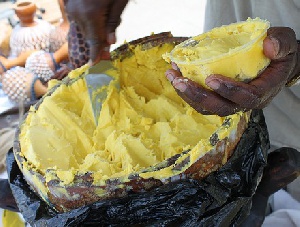Shea Network Ghana (SNG), a local non-governmental organisation (NGO), has trained about 17,000 women from 34 districts in the three regions of the North in the business of shea processing so they can improve the quality of production.
The training was to build the capacity of actors in the shea sector and enhance production of quality shea butter to meet international standards.
The shea sector has potential to bridge the development gap between north and south, hence the need for enhancing the sector to create more wealth and jobs for the youth, organisers of the training course said.
Beneficiaries of the training included shea-pickers, processors, value chain actors as well as stakeholders engaged in the shea business at Tamale.
The occasion was also used to launch the 2016 shea quality and shea season campaign.
The campaign is geared toward supporting rural women engaged in shea processing and producing quality nuts to meet demands of the competitive global market.
A market-linkage component of the campaign is aimed at ensuring the processors produce quality products to attract more investors into the shea industry.
The target is to increase the premium price of shea products from 20 percent achieved in 2015 to 30 percent in 2016.
The women were taken through the process of selecting and par-boiling to ensure quality shea products.
Speaking at the workshop’s opening ceremony, the National Coordinator of SNG, Mr. Zakaria Iddi, stated that destruction of non-timber forest resources such as shea, dawadawa and baobab threatens the livelihood of many, and has a negative impact on the climate.
He said the exclusion of non-timber forest resources in the Forestry Commission Act has the potential to deprive “thousands of residents within the three regions of the North and parts of the Brong Ahafo and Volta Regions” of their means of livelihood.
He therefore called for the amendment of Act (571) to ensure protection of shea trees as well as guarantee compensation for shea-pickers when trees they depend on are destroyed for government projects.
He stated that the sector has the potential to address the poverty level of women in rural areas if government can step-up efforts to decouple shea from the Ghana Cocobod Act PNDCl81 of 1980, so as to create a separate agency that manages the sector’s affairs.
Zakaria Iddi further urged the District Assemblies to enforce bye-laws for shea conservation to ensure sustainability of the resource and its industry.
“Government as a matter of urgency should ensure that the National Health Insurance Scheme (NHIS) covers anti-snake bite serum, to make the serum available and accessible in order to prevent the rampant death of women from snake bites when picking the shea to earn a living,” he said.
The National Coordinator called on donor agencies for support to develop the industry for a better future.
Lilian Kuutiero, Advocacy Officer Oxfam, urged the women to produce quality shea nuts to attract buyers.
She said there is need for the actors to upgrade themselves and adapt to modern ways of processing to meet international standards.
Business News of Friday, 10 June 2016
Source: B&FT













